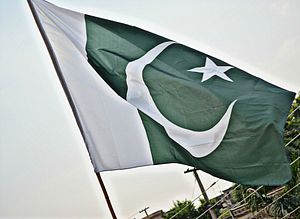Nations across the world honor their heroes by holding their heads up high — by valuing their contribution to economic progress, free speech, and political reforms. No skepticism accompanies these sentiments. Patriotism is a precious quality.
But Pakistan narrates a different version of national service: a version in which faith precedes service, and where the domination of minorities gives hope to a dominant Pakistan.
Abdus Salam, the Nobel Prize winner who played an integral hand in realizing Pakistan’s nuclear ambitions, was stripped of his glory at the QAU Department of Physics, precisely for this reason: he was a man of service. All this happened while Khadim Rizvi, a religious firebrand that opposed Salam’s recognition, succeeded in acquiring parliamentary consensus over the matter. The weight of nationalism was suddenly behind him. Merit and virtue have become things of the past.
Pakistan takes great pride in its nuclear status as the only Muslim power to possess top-grade weaponry. But the question is was this status achieved free of cost?
Salam singlehandedly established the Theoretical Physics Group (TPG), which put forth the path-breaking blueprint of Pakistan’s nuclear weapons. This conceptual design was a result of meticulous scientific research leveraged at the International Atomic Energy Agency, research that ultimately made a vital contribution to Pakistan’s 1998 nuclear tests.
To go with the pains of scientific breakthroughs, Salam had to bear the brunt of mass anti-Ahmadiyya violence. The 1953 Lahore riots risked his integration into a highly polarized society. By 1974, anti-Ahmadiyya legislation under Zulfiqar Ali Bhutto declared all Ahmadis non-Muslims, ensuring Salam could never count himself among the majority.
Even so, he set his dreams of integration aside and persevered. He was representing Pakistan’s dreams of nuclearization. It was worth it.
Interestingly, the term “sacrifice” makes a key contribution to the definition of patriotism in Pakistan. The armed forces underline their sacrifices of over 60,000 soldiers in the war against terror, and political parties recall countless sacrifices in the struggle for democracy. The selfless contributions of both are rewarded in the form of electoral appeal and public trust. Yet for all of Abdus Salam’s sacrifices in pushing Pakistan toward new scientific horizons, he was rewarded with religious prejudice and endless silence.
It is no coincidence that all those disowned by Pakistan are vocal advocates of equality. Malala Yousafzai, Pakistan’s youngest Nobel Prize laureate, is well known for her activism for female literacy and women rights. Her education nonprofit, the Malala Fund, continues to invest millions toward psycho-social support and post-primary education in the disadvantaged communities of Khyber Pakhtunkhwa and the Federally Administered Tribal Areas (FATA). However, her stance on educational equity is viewed by many at home as a reflection of Western agendas and a tactic to further anti-state conspiracies.
Abdus Salam was also of the view that religious beliefs and sectarian dispositions do not determine national identity. Salam’s commitment to his country is evident in his decision to forego an opportunity to study at Princeton University to instead head the Mathematics department at the Government College in Lahore. Moreover, in an interview with journalist Shahid Nadeem, Salam reacted to the Presidential Ordinance about Ahmadis by stating, “I will carry on my work and carry on loving Islam and Pakistan. I was born a Pakistani and I will die a Pakistani.”
Pakistan’s biggest dilemma is that it discredits individuals that stand up for basic rights, while gifting the mantle of patriotism to those with a penchant for violence. For instance, the Pashtun Tahaffuz Movement represents a nonviolent stand against extra judicial killings and forced disappearances in the country. Yet, the state’s reluctance to account for gross human rights violations has given rise to sensational narratives, that claim PTM is a foreign funded campaign or a malicious attempt at weakening the state’s writ.
To the contrary, groups that exercise vitriolic rhetoric against minorities – such as the Tehreek-e-Labbaik Pakistan – are becoming the new architects of a national consensus. The resolution aimed at scraping Salam’s name from the QAU Physics Department was grounded in the conditions put forth by Khadim Rizvi in his three-week siege on the capital. The National Assembly’s unanimous vote on the very resolution confirms the existence of considerable legal space for the systematic discrimination of minorities.
With parliamentary interests striking a chord with violent ideologies and true patriots suffering abandonment, the myth of patriotism reveals itself in broad daylight. Service alone lacks impact and the politicization of faith necessitates violence.
Hannan Hussain is an Islamabad-based writer for Daily Times, DAWN and the Express Tribune. He is also the author of And the Candles Blew.

































